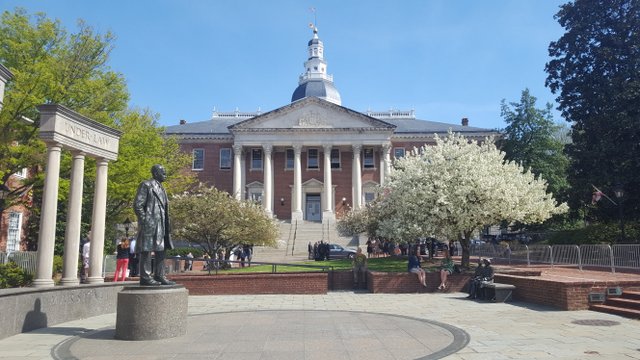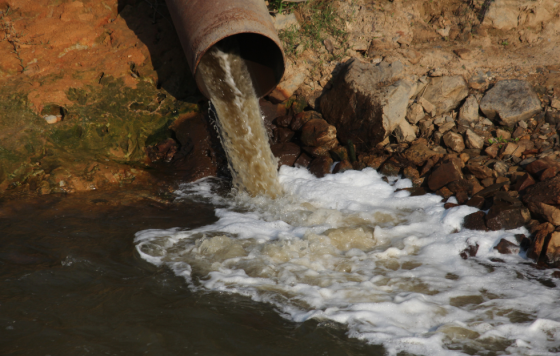
Another legislative session has come and gone. We saw some wins and some losses, but no matter the outcome we continue to work on issues that impact water quality in Maryland.
Septic Stewardship Plans (HB1765): This legislation incentivizes local jurisdictions to create Septic Stewardship Plans, which require education, pumpouts, and record keeping, based on septic system best practices. This bill passed unanimously by both the House and Senate and it now awaits Governor Hogan's siganture.
Complete Streets (HB535/SB407, HB744/SB850): Both bills passed and are now on the governor's desk for signature. HB535/SB407 helps local jurisdictions create and implement Complete Streets policies while HB744/SB850 requires the consideration of Complete Streets policies on state roads. Both bills include green stormwater infrastructure, such as bioswales, as a piece of Complete Streets. Complete Streets policies also take into consideration the safety and accessibility of all road users - including pedestrians and people on bicycles.
Fix It; Fund It - Metro Funding (HB372/SB277): Maryland has agreed to increase the metro funding bills to include the full Maryland share ($167 million) and additional funding for the Baltimore transportation system. The amended HB372/SB277 has passed!
Forest Conservation Act (HB766/SB610): The Forest Conservation Act would have increased the replanting requirement for priority forests (ecologically important, contiguous forest) to one acre replaced for every acre cut down. The Senate amended the bill to be a Task Force on the Forest Conservation Act Offset Policy, while the House amended it further to be a less formal study. Neither the Senate nor the House would agree with the other's language, so the bill failed.
Community Healthy Air Act (HB26/SB133): Neither version of this bill was voted out of Committee. We were disappointed to see the this study of air emissions associated with large animal feeding operations fail, especially as the federal government reduces its oversight of animal-related emissions.
Removing Waste-to-Energy (aka Trash Incineration) (SB282): In an exciting, last week of Session move, SB282 (a bill to extend incentives for tier two renewables) was amended to remove trash incineration from the Renewable Portfolio Standard! Environmentalists and community activists have long pushed back against state subsidies for burning trash. Unlike other incentivized renewables like wind or solar, trash incineration releases NOx and other air pollutants, like mercury and lead. While SB282 moved through the Senate, we knew it was an uphill battle. The bill crossed over weeks after "Crossover" - the deadline for the first chamber to send its bills to the second chamber. It needed a vote out of Rules, a hearing, a committee vote, second reader vote (when bills can be amended), AND a third reading vote all before midnight on Monday. The bill had a great showing of community and activist support, especially from Baltimore City where community members have been living with the daily pollution of a trash incinerator for years.
Edited on April 17th for final bill status update.


